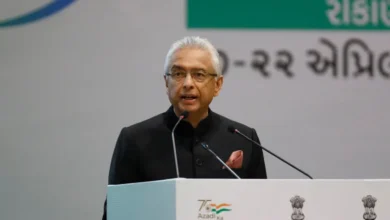Most Swedes want ban on Quran burnings after global outcry

The new survey was released Thursday, amid a storm of protests that Sweden has faced since it allowed a man to burn the Quran in front of a Stockholm mosque on Eid-al-Adha last week.
Multiple governments, especially in Asia and the Middle East, publicly condemned the act, with Pakistan’s prime minster calling for nationwide protests on Friday. The Pope said he was “angry and disgusted” by the burning. The United Nations is expected to meet soon to discuss the incident.
That global reaction might have influenced the change in public opinion, Toivo Sjoren, head of opinion at Kantar Public, told SVT.
The Quran burnings have contributed to Turkey holding up Sweden’s bid to join NATO, which it launched following Russia’s full-scale invasion of Ukraine in 2022. Turkish President Recep Tayyip Erdogan slammed Sweden over last week’s burning.Police have already refused permission for two Quran burnings in 2023, but the Court of Appeals later overturned these decisions.
The Swedish government has also condemned the “Islamophobic” act after the Organisation of Islamic Countries called for measures to avoid future desecration of the Muslim holy book.
“The burning of the Quran, or any other holy text, is an offensive and disrespectful act and a clear provocation. Expressions of racism, xenophobia and related intolerance have no place in Sweden or in Europe,” the Swedish foreign ministry said in response to the latest burning.
At the same time, the ministry added that Sweden has a “constitutionally protected right to freedom of assembly, expression and demonstration”.
Sweden can enact a law on incitement against ethnic groups but only to restrict what can be said and where the burnings can occur. A complete ban on desecrating holy scriptures would require a law which Sweden scrapped in the 1970s to be reintroduced.










